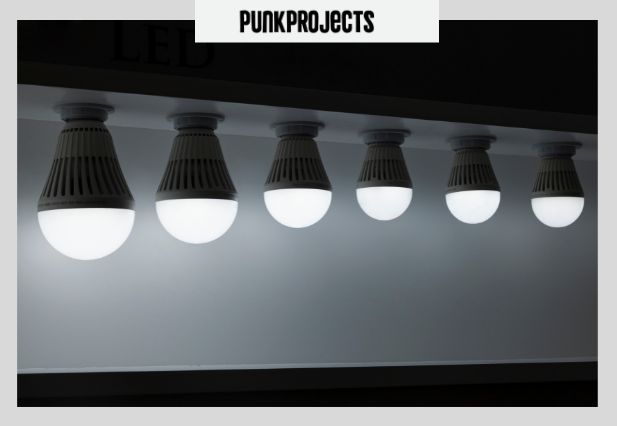Multiple Lights Flickering in House? You’re not alone! Find out why it’s happening and how to fix it.
Overloaded circuits and loose wiring are likely causes. This article can help you identify and resolve the issues behind flickering lights in your house.
Multiple Lights Flickering in House

Are multiple lights in your house flickering? It’s important to detect if the problem is with one single light or the entire circuit. Take precautions and be aware of potential hazards before doing any repairs.
If only one light is flickering, it could be from bad wiring, loose connections, or an aging bulb. Check each connection and make sure it’s secure. Replace the bulb and see if that stops the flickering.
If multiple lights are flickering, it might be due to power surge protection or incorrect wiring on an appliance plugged into the same wall outlet. Unplug any outside appliances like microwaves or air conditioners and check the lights again.
If so, you may have to repair the power surge unit or the wiring of the appliance. Get an electrician if you think the issue is related to power surge protection or incorrect wiring.
What Would Cause Lights to Flicker?

Flickering lights at home can have different causes. It’s essential to discover the cause of the problem. This way, you’ll know if it’s easy to fix or if a qualified electrician needs to be hired.
Often, the cause is loose or corroded wiring or overloaded circuits. Loose wiring happens when wires become loose from their connection to a breaker box, wall socket, switch box, light fixture, etc. Corroded wires and old electrical panels may also be part of the problem. Overloaded circuits happen when too many appliances and electronics are running on one circuit, making an insufficient power supply.
If this is the reason for your flickering lights:
- Unplug any appliances or electronics and reset the circuit breaker.
- Increase the wattage rating of the bulbs to meet energy efficiency
requirements. - Don’t use multiple appliances at once to reduce demand on the circuit.
- Use surge protectors or regulating devices when using multiple electronics on one circuit.
Incorrect bulbs may also lead to flickering lights. Incorrect wattage ratings or incompatible types of bulbs can put extra strain on a system and make the bulb fail. Ensure all bulbs meet energy efficiency requirements and use compatible types of bulbs to prevent flicker-related issues. Check also: Water Heater Pilot Light
Why Are My LED Lights Flickering?

LED light flickering can be a bit unsettling. It might be caused by a deeper issue with the electrical system, or just a loose fitting bulb. Fixing it quickly is important; it can affect energy use, electrical bills and even cause eye strain. There are simple solutions for this problem!
Here are some potential causes:
- Incompatible LED driver or power supply. Make sure all components are compatible – otherwise, flickering or failure might happen. The power supply needs to be compatible with the bulbs and other components in the circuit.
- A damaged or defective LED bulb. Over time, external factors like dirt and age can damage the bulb – if so, replace it.
- Loose connections or bad terminals. Check all connections in the circuit, at each fixture and every terminal or junction box in between. When replaced/tightened correctly, flickering should stop.
Why Are My Lights Flickering in the Whole House?

Lights flickering in your house could be caused by many things. Usually, it’s an electrical wiring issue in the power system. Such as bad grounding, small wire size, and loose connections. In older homes with knob-and-tube wiring, these can cause the flickering.
Other causes may include:
- Faulty outlets and switches
- Bad neutral connection
- Problems with the panel or circuit breaker
- High demand from large appliances running at the same time.
In most cases, an electrician is needed to fix this problem. They’ll check for sparks, test components, and make sure repairs are safe. Do not attempt this yourself – a professional should handle it.
How Do I Stop My Lights From Flickering?

Flickering lights in your home can mean a bigger problem. Check the wiring, fixtures, outlets, and breakers. Different reasons can cause it:
-Bad wiring: Aging or damaged wiring can cause fluctuations in electricity.
-Loose connections: Connections get loose over time and can cause flickering.
-Compatibility issues: Energy-efficient light bulbs or LEDS may not fit old fixtures.
-Defective bulbs: Worn out bulbs can flicker due to lack of filaments.
Call a professional electrician to fix the issue. They’ll inspect connections and rewire or replace parts. Make sure to tighten connections before turning the power back on; it can be dangerous.
How Big a Problem Are Flickering Lights?
Flickering lights can be indicative of a loose connection or a minor issue with the bulb. This isn’t just a minor issue – it can lead to a faulty electrical system and even a fire. If multiple lights are flickering, they could be linked to the same problem. It’s best to leave electrical troubleshooting to professionals.
Possible causes of flickering include loose light fixtures, old wiring, overloaded circuits, faulty circuit breakers or switches, and defective bulbs. To keep your home and its electrical system safe, have any flickering lights investigated and repaired promptly by an electrician. Doing this will ensure a safe living environment and extend the life of the electrical system components.
Minor Issues For Flickering Lights
If one or more lights are flickering, the bulb is likely at fault. Replace it if it’s cracked, broken, or has a different wattage than the light fixture. Tighten the connection between the bulb and socket to see if that fixes it.
Check with a working bulb to see if that works. Use bulbs designed for dimming switches or LEDs rated for dimming applications. If the issue persists, contact a qualified electrician for further investigation.
All Led Lights in House Flickering
LED lights may flicker or dim for various causes. A wrong power supply is a big one. This can be caused by incompatible dimmers, loose wiring, or wrong wiring. Additionally, flickering may happen if lights are overdriven, connection between fixture and socket is poor, or fixtures not rated for dimming.
To fix this, verify that all lighting components are right-sized and rated for dimming LED light sources. A qualified electrician can help with this if needed. If all elements appear fine, but still flickering occurs, replace faulty or loose wiring connections. Also, replace aging switches and/or add extra circuitry.
Lights Flickering in House Randomly
If your home lights are flickering randomly, it could mean a problem with the electrical wiring or light fixtures. This could be caused by faulty wiring, a loose connection, or if several lights flicker at once, it could be an issue with the power supply.
If you’re uncertain of the cause, call a qualified electrician. To help them examine the situation, the electrician may ask how often the lights flicker, if it’s during the day, if all bulbs blink or just some, if there’s a pattern, if any new products were installed recently, or if there’s buzzing.
Once all questions are answered, the electrician can tell you why your lights are flickering and suggest solutions, such as correcting loose connections, replacing damaged wiring and light fixtures, or any other issues that appear.
Old House Lights Flickering
In aged homes, flickering lights are frequently seen. This is because the electrical wiring has worn out and corroded. It can also be caused by dust and dirt in a luminaire or a loose wire connection.
An electrician should be hired to identify and solve the problem. If it’s due to aging wires, rewiring might be the best option.
If this problem is not dealt with, it could cause electric shocks or fires. So if your old house’s lights are flickering, call a certified electrician without delay.
Lights Flickering on One Circuit
Flickering lights on one circuit in your home could mean a few things. It could be a wiring issue – such as loose connections or faulty parts. It could be a fault in the main panel or fuse box. In rare cases, it could be an electricity surge in the power lines.
Don’t try and fix it yourself! Get the advice of an electrician. They can assess the wiring and make safe repairs. They might even suggest installing surge protectors or other safety measures to protect your home from power surges and more.
How to Fix Flickering Lights in House

Check the total wattage used in rooms with flickering or dimming lights. You may need more wiring to handle the power needs without overloading one circuit.
Old wiring or loose connections in your home’s electrical system can cause flickering. An electrician can check for faulty wires and investigate arcing on switches, receptacles and breaker boxes. Flickering could also be due to voltage drops. This should be investigated by an electrician.
Finally, flickering could be from dimmable fluorescent bulbs in fixtures not meant for dimming. Have an electrician check this. A simple replacement with suitable non-dimmable fluorescent bulbs will fix it.
Ceiling Light Flickering
Commonly caused by loose wiring, broken or loose light bulbs, bad socket connections, inadequate wattage rating or faulty light switch.
Inspect all ceiling lights individually. If multiple bulbs, check for damage or wear and tear. Make sure bulbs are secured in sockets. Ensure switches are working.
No issues identified? Could be a wiring problem in the circuit. Consult a qualified electrician for further examination and repairs.
Why do My Lights Flicker Every Night at The Same Time
Another cause of flickering is having an incompatible dimmer switch with LED bulbs. These bulbs require more current than usual, making them more prone to energy surging and dropping, which can result in dimming and flickering.
Finally, inspect the power provider’s patterns of supply and demand before concluding that it’s something within your house. For safety and to avoid any further issues, have a professional electrician inspect your home’s electrical system before attempting repairs yourself.
Frequency Ask Question
Why are multiple lights flickering in my house?
There could be several reasons for multiple lights flickering in a house. It could be due to a problem with the electrical system, such as a loose connection, a faulty switch, or a circuit overload. It could also be caused by external factors like voltage fluctuations from the power grid or a faulty transformer.
Can I fix multiple lights flickering issue on my own?
If you have experience and knowledge about electrical systems, you may be able to fix simple issues, such as replacing a faulty switch or tightening loose connections.
Can weather or external factors cause multiple lights to flicker?
Yes, weather or external factors can cause multiple lights to flicker. Voltage fluctuations from the power grid due to weather conditions, such as thunderstorms, or issues with the local utility provider’s equipment, such as a faulty transformer, can cause lights to flicker.
Is flickering of lights a sign of a serious electrical problem?
Flickering lights can be a sign of a serious electrical problem, especially if it’s happening throughout the house or in multiple rooms. It could indicate an issue with the main electrical panel, wiring, or other components of the electrical system.
What should I do if I notice multiple lights flickering in my house?
If you notice multiple lights flickering in your house, it’s important to investigate the issue further. Start by checking the affected lights and switches for any loose connections or signs of damage. If you’re not comfortable or experienced in dealing with electrical issues, it’s best to call a qualified electrician to inspect and diagnose the problem.
I am a multi-talented designer and contractor with over 10 years of experience in the field. I have a passion for creating beautiful, innovative spaces that reflect my clients’ needs and styles. My skills include architectural design, interior design, space planning, project management and construction supervision.






